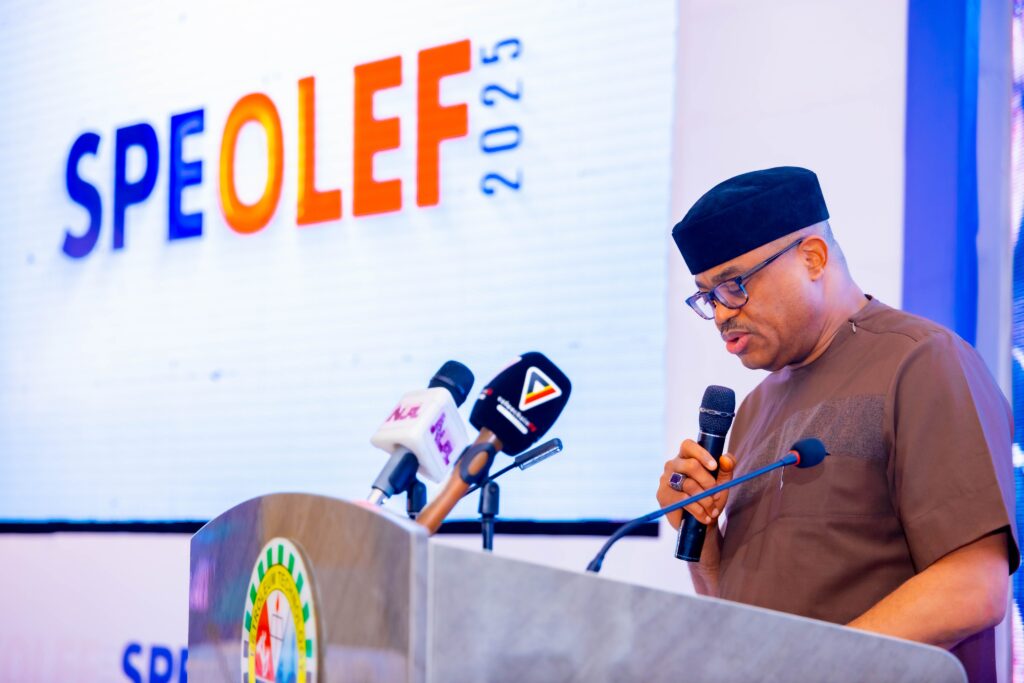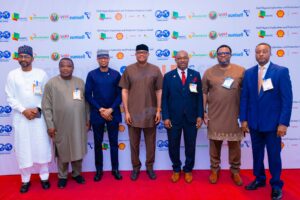The Nigerian National Petroleum Company Limited (NNPC Ltd.), said it has embraced digital transformation as an operational imperative towards driving value and operational resilience in line with current and emerging realities of the global energy landscape.
Ojulari, represented by Mr. Udy Ntia, Executive Vice, Upstream, in a Keynote Address on Industry Operations, at the Society of Petroleum Engineers (SPE) Oloibiri Lecture Series & Energy Forum (OLEF) said that globally, upstream oil and gas companies were expected to invest more than 30 billion dollars in digital technologies in 2025.
“These technologies are not optional extras. They are foundational to improving asset reliability, lowering lifting costs, and reducing greenhouse gas effects.
“At the NNPC Ltd., we have embraced digital transformation not as a buzzword but as an operational imperative. We have embraced this reality with deliberate strategy.
“Our upstream subsidiary is deploying real-time reservoir monitoring, predictive maintenance, and AI-driven subsurface imaging to drive value and operational resilience,” he said.
He further said that its digital transformation roadmap was anchored on three core pillars, intelligent automation, data governance, and cyber resilience.
“But beyond revenue, our hydrocarbon wealth must now become a bridge to a broader, more sustainable energy future. Technology is no longer an enabler. It has now become a fulcrum.
“In alignment with Nigeria’s energy transition plan, targeting to achieve net zero emissions by 2060, the NNPC Ltd. has initiated gas-led transition programmes, including the expansion of autogas programme, targeting more than one million vehicles through 2026.
“Energy transition is not a story. It is a global necessity, but its pathways must be shaped by local realities. Africa cannot afford a transition that leaves its people in the dark.
“As we forge ahead into this new energy era, let us remember sustainability is not a destination. It is a journey, a journey powered by technology, guided by sound policy, and anchored on a robust ethical supply chain,” the GCEO said.
In his address, Mr Gbenga Komolafe, Commission Chief Executive (CCE), Nigerian Upstream Petroleum Regulatory Commission (NUPRC), emphasised on driving energy sustainability through regulatory enablements of upstream operation in Nigeria.
Komolafe, represented by Mr Enorense Amadasu, Executive Commission, Development and Production, NUPRC, said its regulatory framework was not just about industry oversight, but about actively shaping a sustainable and prosperous energy landscape for Nigeria.
However, he said the NUPRC was driving energy sustainability through regulatory enablement, based on five-pronged approach.
He highlighted them as introducing responsive and efficient regulation to entrench clarity and predictability and advising governments on national initiatives and strategic direction to govern upstream operation.
He included enabling technology adaptation and deployment for cost-effective, optimised, and sustainable development and production operations.




